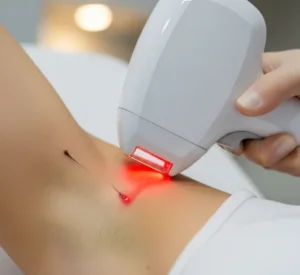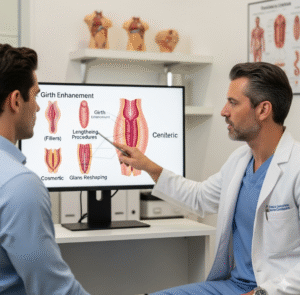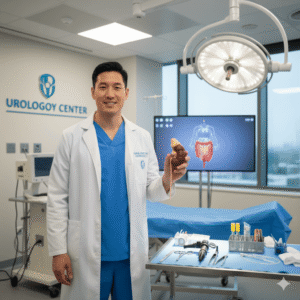Overview
Endometriosis is a chronic gynecological condition in which tissue similar to the lining of the uterus (endometrium) grows outside the uterine cavity. This can cause pain, inflammation, and infertility. South Korea offers advanced diagnostic methods, minimally invasive surgeries, and medical management options for effective treatment of endometriosis.
What is Endometriosis?
Endometriosis occurs when endometrial-like tissue implants outside the uterus, most commonly on the ovaries, fallopian tubes, pelvic lining, and sometimes the intestines or bladder. These implants respond to hormonal changes during the menstrual cycle, leading to bleeding, inflammation, and formation of scar tissue or adhesions.
Symptoms
- Painful periods (dysmenorrhea)
- Chronic pelvic pain
- Pain during intercourse (dyspareunia)
- Painful urination or bowel movements, especially during menstruation
- Heavy menstrual bleeding or irregular periods
- Infertility or difficulty conceiving
- Fatigue and digestive issues in severe cases
Causes
The exact cause of endometriosis is unknown, but several factors may contribute:
- Retrograde menstruation (menstrual blood flowing backward into the pelvic cavity)
- Immune system dysfunction
- Genetic predisposition
- Hormonal imbalances, particularly estrogen dominance
- Metaplasia (transformation of peritoneal cells into endometrial-like cells)
Risk Factors
- Family history of endometriosis
- Early menarche or late menopause
- Short menstrual cycles (<27 days)
- Heavy menstrual flow
- Never giving birth (nulliparity)
- Certain reproductive tract anomalies
Complications
- Infertility due to adhesions or damaged reproductive organs
- Chronic pelvic pain affecting daily activities
- Ovarian cysts (endometriomas)
- Bowel or urinary tract obstruction in severe cases
- Emotional distress and reduced quality of life
Prevention
While endometriosis cannot be fully prevented, early detection and lifestyle measures may help manage symptoms:
- Maintain a healthy weight and exercise regularly
- Use hormonal contraceptives to regulate cycles and reduce pain
- Seek early medical attention for severe menstrual pain or fertility issues
- Avoid excessive alcohol and caffeine, which may exacerbate symptoms
Treatment Options in Korea
South Korea provides comprehensive management of endometriosis with a combination of medication, surgery, and supportive care.
- Diagnosis
- Pelvic ultrasound or transvaginal ultrasound
- MRI for detailed imaging of deep endometriosis
- Laparoscopy with biopsy for definitive diagnosis
- Medication
- Nonsteroidal anti-inflammatory drugs (NSAIDs) for pain relief
- Hormonal therapies: oral contraceptives, progestins, GnRH agonists/antagonists
- Aromatase inhibitors in selected cases
- Surgical Intervention
- Laparoscopic surgery to remove endometrial implants, adhesions, or cysts
- Hysterectomy with or without ovary removal in severe or refractory cases
- Fertility Support
- Assisted reproductive technologies (ART) such as IVF for women struggling to conceive
- Pre- and post-surgical fertility counseling
- Follow-up & Supportive Care
- Regular monitoring with imaging and symptom evaluation
- Pain management programs
- Nutritional counseling and mental health support
- Major Hospitals in Korea
Institutions provide advanced endometriosis care, including minimally invasive surgery, fertility preservation, and multidisciplinary management.













